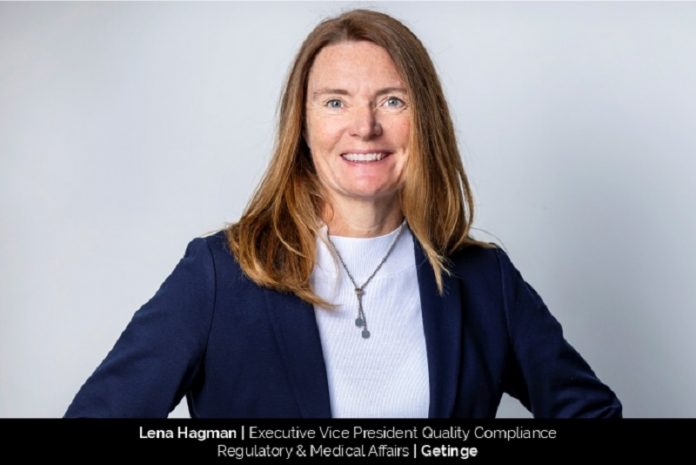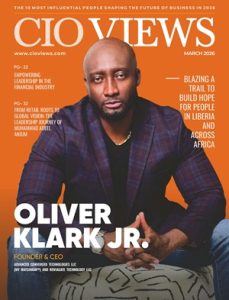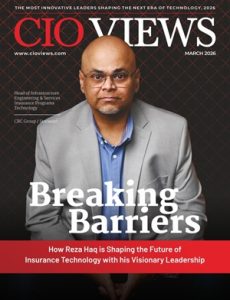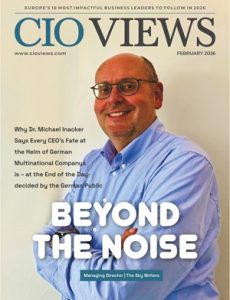During a pandemic, it requires strong commitment and determination to ensure that life-saving devices are always available to those who need them.
One of the issues that many hospitals face during the COVID-19 pandemic is the extreme shortage of medical devices like ventilators.
That has made the work of Lena Hagman, Executive Vice President, Quality Compliance, Regulatory and Medical Affairs at Getinge, even more important in ensuring the availability of life-saving medical technology and devices to those who need them.
Lena is one of the leaders in medical devices and technology who is working to ensure that hospitals are supplied with safe devices and have efficient processes in place to save lives in the coming years.
A long career in the healthcare industry
An experienced business leader within the Medical Device and Life Science Industry, Lena has spent almost her entire career in the healthcare industry. “I am an engineer and have been in the medical device industry since university,” she says.
After working in the finance office at Mölnlycke Health Care, Lena went to University at the Chalmers School of Technology in Gothenburg, Sweden. For a short while, she took on a role on the healthcare provider side, fulfilling a personal desire to work in a different part of the industry, but quickly realized that she found more satisfaction in creating more value in manufacturing.
“Operations, manufacturing, and quality have been my main areas of focus, but I have also spent time with company integrations after acquisitions,” she says. Lena joined the Getinge family in 2010 as VP Quality and Regulatory at ArjoHuntleigh – one of the three business areas in a holding company structure.
“After some time, I headed up the R&D area in parallel for two and a half years,” she recalls. “In 2014, I was promoted to SVP Quality and Regulatory Compliance for two of our three business areas, and eighteen months later, I was drafted for a new role at Getinge as EVP, overseeing QRC globally.”
Being recognised as a top woman leader in medical devices
With a high business orientation and deep knowledge of company acquisitions and integrations, experience in leading R&D, Operations, Quality, Regulatory and Medical Affairs, Lena’s focus areas and strengths are change management, mainly within business processes and efficiency.
She has extensive knowledge of the European and US Food & Drug Administration (FDA) laws and regulations, and many years of experience with quality and regulatory remediation programs and multisite FDA Consent Decree. Lena also ranked number 7 in the Healthcare Technology Report’s “Top 25 Women Leaders in Medical Devices of 2021.”
“I have spent almost my entire career in healthcare because ultimately we play a part in saving lives, and that is an added dimension that we can take pride in,” she says. She ascribes her success to the support of health care providers, ensuring they have all the tools they need to do their job in a safe and efficient way.
“I think it may be a coincidence that you end up in the field you are in, and if you enjoy what you are doing, you stay and develop yourself, leading to personal success and fulfillment,” she says. As Lena’s job title encompasses compliance, it could at first, be seen as a narrow scope.
“But, in the heavily regulated medical device industry, my role is directly connected to business requirements and integrated into the framework of our marketplace,” she says. “We must always ensure that we have safe devices and efficient processes in place to meet those requirements and expectations.”
Saving lives for almost a century
Since the production of their first equipment sterilizer in 1932, Getinge has been in the medical technology space for almost a century. They provide hospitals and life science institutions with products and solutions that aim to improve clinical results and optimize workflows.
Throughout the history of the healthcare industry, medical devices have been seen as tools to perform life changing medical procedures. With the advent of “smart technology” being intertwined into everything from cars to home appliances, it only makes sense that operating rooms and surgical centers adapt and take advantage of smart technology as well.
“We have been a leader in artificial intelligence driving efficiency with solutions like Torin, that allows hospitals to plan, manage and optimize surgical flow to maximize resources and enhance coordination ensuring the best possible care for patients,” Lena shares.
With the acquisition of a company like Talis Clinical, Getinge is now able to offer integrated, actionable patient information for different procedures that require close observation and constant data analysis. Getinge’s Tegris System centrally manages and operates a wide range of equipment in the operating room, creating a safer surgical environment through video, device and data integration.
“It is exciting to be a leader in this space and there is no doubt that digital health solutions are the future of our industry,” says Lena. “While we are leaders in medical technologies, we have made it a focus of our business to continue to bring more data-driven intelligence to procedures, and are uniquely suited to have a wide impact as the broad portfolio from Getinge gives us access to the entirety of the care system.”
Lena’s goal is to continue to look at ways that Getinge’s digital health systems can bring value to their customers by improving the safety of procedures and better workflow efficiency before, during, and after the patient starts their treatment.
“Our vision is that through innovation, and patient and customer-centricity, Getinge will be a leading, trusted global medtech company, driving improvements and creating value for healthcare providers, patients, and society,” she says. “As we continue our leadership, expect to see Getinge expand our footprint in artificial intelligence and data-driven solutions at both, the point of procedure and the administrative levels.”
Getinge will continue to emphasize and invest in digital healthcare systems while expanding the company’s presence in other key medtech areas, including Life Sciences, Cardiovascular Procedures, Sterile Reprocessing, Operating Rooms, and Intensive Care Units.
“I am excited to be a part of the fast paced environment and am looking forward to helping Getinge in my role to work alongside global health authorities as they navigate the challenges of reviewing the benefits of these emerging technologies and making them available to the customers and patients who benefit from them,” she says.
Learning the value of teamwork
“One of the achievements I am most proud of was when I was asked to take over the R&D team with the challenge that our time to market was too long,” says Lena. “When I took over the team we had nine substantial projects running simultaneously and, historically, we had been able to launch only one product every 18 to 24 months.”
At the same time, she had to merge and integrate six design units into two new centers and one satellite site. After two years, they delivered a fully integrated R&D organization across three consolidated sites, and all nine projects were ready to be launched. This experience helped Lena realize that a successful leader needs to be surrounded by good team members.
“I have learned how important it is to make sure the organization and individuals share the same vision of what needs to be achieved in order to be successful,” she says. “I learned a great deal about the value of teamwork through that process and we achieved a lot together. I have a firm belief that success is built on a clear common vision and results come from team effort.”
Lena considers it very important to see individuals in her team growing, taking ownership, and collaborating with others to achieve the company strategy and targets. “If I can guide my team to work together to achieve sustainable and long-term results, that is success for me,” she says.
Challenges make you a better leader
While the pandemic brought with it many challenges for those in the healthcare industry, such as getting service techs to visit the hospitals to maintain medical devices or to install ventilators, Lena believes that challenges – along with mistakes – make you stronger and they also make you a better leader.
“New challenges outside of my comfort zone make me grow, force me to think outside my normal perspective, and give me the opportunity to learn from others,” she says. Lena also recognizes that all individuals are different and that leaders need to work hard to gain everyone’s commitment to their goals.
“I find I must identify different ways to explain the business and human purpose of our objectives to get different individuals on board,” she says. “Presence and two-way communication is ultimately the key to all of these lessons.”
Creating value with access to life-saving products
For Lena, no two days are alike. She spends time with her direct reports to listen and support what they need, so that they can fulfill their tasks to the best of their abilities. Sometimes, she spends a full day assessing strategic initiatives, projects and follow ups.
“In my role, it is critical that I ensure we stay ahead of potential issues and work proactively to mitigate those risks connected to processes and products,” says Lena. “In the medtech industry, process disruption can have a profound impact on your business and on our customers’ ability to access our life-saving products.”
Over the years, Lena has managed to create a good balance between family and work, and believes that life balance is very individual, and is built on one’s own and family alignments and priorities.
“I believe you must enjoy what you do and who surrounds you,” she says. “I have consistently asked the question: ‘Is what I am doing creating value?’ If it does, I do it. If I cannot find the value, it will be lower on my to-dos, and may even just disappear from the list.”





